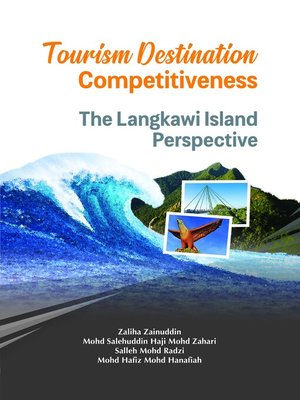
Sign up to save your library
With an OverDrive account, you can save your favorite libraries for at-a-glance information about availability. Find out more about OverDrive accounts.
Find this title in Libby, the library reading app by OverDrive.



Search for a digital library with this title
Title found at these libraries:
| Library Name | Distance |
|---|---|
| Loading... |
Destination competitiveness has become a critical issue and it creates an increasing challenge in the tourism market. A successful tourism destination should embrace an integrated approach toward many components of the tourism system and the competitive advantage of a destination is closely related to the quality of the products offered, which would determine the quality of experience provided by the destination. Researchers determine that comparative advantages are mostly related to the resources of a tourist destination, tourism image, climate, the countryside, its cultural wealth and its distance from countries of origin. Due to the different nature of destinations or the purpose/types of tourism activities, it is hard to measure, evaluate, and compare destinations, as, in many cases, they are unique in their features and cannot be considered identical. Therefore, in analyzing the competitiveness of tourism destinations, it is necessary to include the level of satisfaction of visitors and the tourism image as a paradigm of destination competitiveness in the global tourism market. This book shows the results of an empirical investigation on the influence of perceived destination competitiveness attributes and the mediating effect of tourism image and tourist satisfaction in terms of international tourists' response behavior using Langkawi Island, Malaysia, as a contextual study setting. The outcomes of the empirical investigation, without a doubt, expand on existing tourism destination competitiveness studies and contributes to the academic and managerial or practical perspectives. The academic aspect is generated through theoretical contributions, whereas the empirical and practical contributions are closely connected to the destination local authorities, hotel and tourism operators, and related government authorities.







